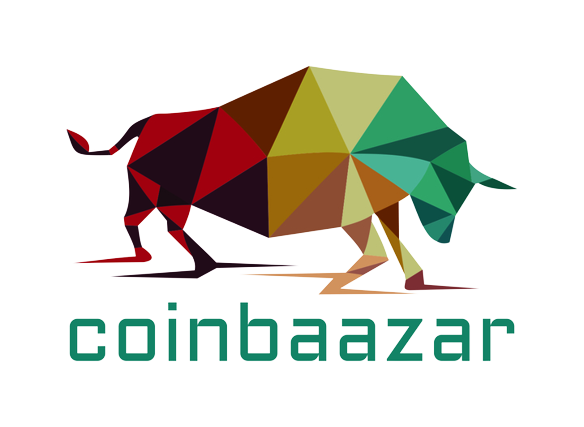What is bitcoin? Is it a currency, an investment, an asset or a stock. Well, yes it can be all of them. Bitcoin is a form of digital currency aka BTC. Bitcoins are not paper money like dollars or euros by central banks or monetary authorities. Bitcoin is a system for securely buying, storing and using money digitally.
You can also use bitcoin, where you refer the purchaser to your signature which is a long-time security code encryption with 16 distinct symbols. The purchaser decodes the code with his smartphone to get your cryptocurrency.
In other words, cryptocurrency is an exchange of digital information that allows you to buy or sell goods and services. The transaction gains its security or trust by running on a peer-to-peer computer network which is similar to Skype or file-sharing system.
Founder of the BTC
BTC was first introduced as open-source software by an anonymous group of programmer under the alias SATOSHI NAKAMOTO. For the first time in October 2008, it was authored on white paper, then created and deployed an original reference.
Who controls Bitcoin?
The main advantage of bitcoin is its independence from world governments, banks, and corporations. Not a single authority can interfere into BTC transactions, impose transaction fees or take people’s money away.
Furthermore, the bitcoin movement is extremely transparent means every single transaction is storing in a massive distributes public ledger which is BLOCKCHAIN. Bitcoin doesn’t control a network, it gives its users total control over their finances.


How Does Bitcoin Work?
For traditional money, you always need a mediator to transfer money for you. But bitcoin remove every mediator or network just to calculate transactions for you without any mistake. For the first step you need to install a bitcoin software on your mobile phone or PC, it will grant you a wallet that has an address. The wallet belongs to you and used to send or receive bitcoins by address. You will only see the amounts of bitcoins on your wallets and transaction results.
The Bitcoin network is sharing a public ledger called ‘blockchain’. This ledger contains every transaction ever processed. Digital records of transactions are combines into ‘blocks’.
If someone tries to change a letter or a number in a block of the transaction, it will also affect all of the following blocks. Your wallet can verify the validity of each transaction. The authenticity of each transaction is secure by digital signatures corresponding to the sending address.
Characteristics of Bitcoin:-
- Decentralized: One of the main objectives while creating bitcoin was the network’s independence from any governing authorities. It is designed so that every person, business as well as every machine used in bitcoin mining becomes a part of this vast network.
- Anonymous: Bitcoin wallet doesn’t have to link any personally identifying information, some people don’t want their finances to control and track by any kind of authority, others might argue that drug trade, terrorism will thrive this relative anonymity.
- Transparent: The anonymity of BTC is only relative, as every single BTC transaction that ever happens is stored in blockchains. Tracing a particular bitcoin address to a person is still nearly impossible. There are certain types of wallets that priorities opaqueness and security, but the simplest way is to use multiple addresses and not transfer a massive amount of money to a single wallet.
- Fast: Bitcoin network process payments almost instantaneously, it normally takes a few minutes for someone on the other side of the world to receive money, while the normal bank can take several days.
- Non-repudiable: Once you send your bitcoin to someone there is no way of getting it back unless the recipient wants to send them back to you, this ensures the reception of the payment. That means the trader can’t scam you by claiming that they never got the money.
How Bitcoin is Different From Traditional Currencies :
- Decentralized: Every currency in the world apart from cryptocurrency, is led by some kind of authority. Every transaction goes through a bank, where people have to pay enormous fees, and it normally takes a long time for money to reach the recipient. On the other hand, bitcoin is not led by anyone. It’s a decentralized network and it’s built on the cooperation and communication of all the people taking part in it. Because of this, even if some part of the network goes offline, transactions will still be coming through.
- It Can’t be counterfeited: Bitcoin was designed as a currency that can withstand counterfeiting attempts. The legitimacy of BTC is ensured by the Blockchain technology, as well as by various different defence mechanisms built into every algorithm. Most traditional currencies are prone to counterfeiting and those who control them also seem to do the close nothing to fix it.
- Durability: Bitcoins don’t exist in physical form, which means they cannot be damaged. Every single BTC is essentially eternal, unlike paper money or coins.
- Irreversible: If someone makes send money to the wrong wallet and wants to get it back, they can’t. Like many other BTC features, this was done in order to prevent fraud. When it comes to traditional currencies, most transactions can be recalled.


Spot on with this write-up, I seriously feel this website needs a great deal more attention. I’ll probably be returning to read through more, thanks for the info!
Very neat blog. Keep writing.
I really like and appreciate your post.Thanks Again. Will read on…
This site definitely has all the information and facts I needed concerning this subject and didn’t know who to ask.
asmr 0mniartist
Very informative article post.Thanks Again. Awesome.
Bitcoin is a decentralized, digital-only currency. It has no central monetary authority. Instead, a peer-to-peer computer network keeps track of Bitcoin transactions and creates additional bitcoins through a process called “mining.”